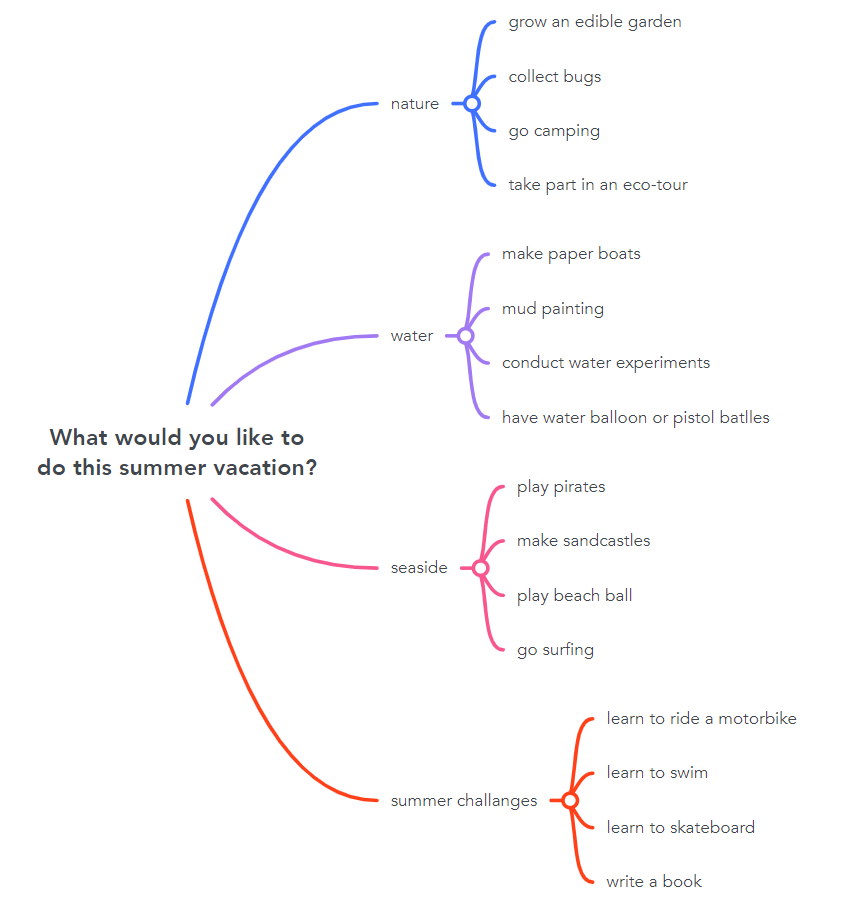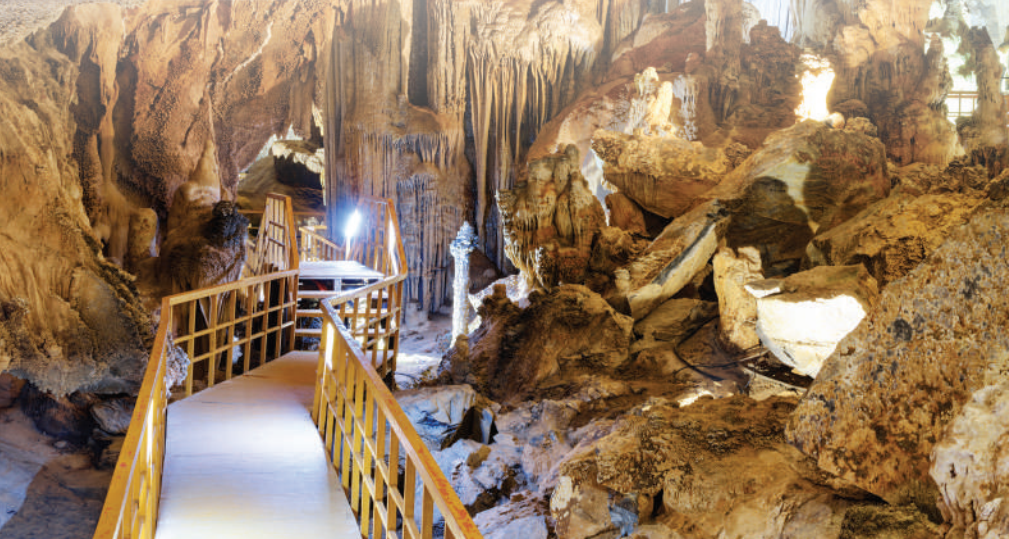Giáo án Tiếng anh 10 Unit 10 (Global Success 2024): Ecotourism
Với Giáo án Unit 10: Ecotourism Tiếng anh lớp 10 sách Global Success sẽ giúp thầy cô dễ dàng giảng dạy và biên soạn giáo án Tiếng anh 10 Unit 10.
Chỉ từ 300k mua trọn bộ Giáo án Tiếng anh 10 Global Success bản word (cả năm) trình bày đẹp mắt (Chỉ 70K cho bài giảng bất kì):
B1: Gửi phí vào tài khoản 0711000255837 - NGUYEN THANH TUYEN - Ngân hàng Vietcombank (QR)
B2: Nhắn tin tới zalo Vietjack Official - nhấn vào đây để thông báo và nhận giáo án.
Xem thử tài liệu tại đây: Link tài liệu
Giáo án Tiếng anh 10 Unit 10 (Global Success): Ecotourism
Lesson 1: Getting started – An eco-friendly fieldtrip to Phong Nha Cave
I. OBJECTIVES
By the end of this lesson, students will be able to gain:
1. Knowledge
- An overview about the topic ecotourism;
- Words and phrases related to ecotourism;
2. Core competence
- Develop communication skills and awareness of tourism and their impact on the environment;
- Be collaborative and supportive in pair work and teamwork;
- Actively join in class activities.
3. Personal qualities
- Develop a sense of being an ecotourist;
- Be aware of tourism and their impact on the environment.
II. MATERIALS
- Grade 10 textbook, Unit 10, Getting started
- Computer connected to the Internet
- Projector/ TV/ pictures and cards
- sachmem.vn
Language analysis
|
Form |
Pronunciation |
Meaning |
Vietnamese equivalent |
|
1. stalactite (n) |
/ˈstæləktaɪt/ |
piece of rock hanging down from the roof of a cave |
nhũ đá, thạch nhũ, vú đá |
|
2. fieldtrip (n) |
/ˈfiːldˌtrɪp/ |
a visit made by students to study something away from their school or college |
chuyến tham quan |
|
3. packaging (n) |
/ˈpæk.ɪ.dʒɪŋ/ |
the materials in which objects are wrapped before being sold |
bao bì, giấy gói hàng |
Assumptions
|
Anticipated difficulties |
Solutions |
|
- Students may not know some words in the conversation. - Students may not know how to work in teams. |
- Provide students with some lexical items before listening and reading the conversation. - Give short, clear instructions and help if necessary. |
Board Plan
|
Date of teaching UNIT 10: ECOTOURISM Lesson 1: Getting started – An eco-friendly fieldtrip to Phong Nha Cave
* Warm-up: Brainstorming Task 1. Listen and read. Task 2: Correct the mistakes. Task 3: Put each phrase into the correct column. Task 4: Complete these sentences from Task 1. * Homework Choose a local tourist attraction and find information about it. |
III. PROCEDURES
Notes:
In each activity, each step will be represented as following
* Deliver the task
** Implement the task
*** Discuss
**** Give comments or feedback
|
Stage |
Stage aim |
Procedure |
||
|
WARM-UP |
- To activate students’ knowledge on the topic of the unit. - To create a lively atmosphere in the classroom. - To lead into the new unit
|
BRAINSTORMING * T asks Ss to brainstorm answers for the question: What would you like to do this summer vacation? ** Ss work in groups to do brainstorming. *** T and Ss discuss the answers. **** T provides suggested answers and focuses on the phrase “take part in an eco-tour” to lead in the topic of the unit. Suggested answer:
|
||
|
PRESENTATION |
To introduce some vocabulary related to the unit |
VOCABULARY * T asks Ss to look at the explanation and the photos to guess the meaning of new words. ** Ss say the Vietnamese meanings of the words. 1. stalactite (n): piece of rock hanging down from the roof of a cave 2. fieldtrip (n): a visit made by students to study something away from their school or college 3. packaging (n): the materials in which objects are wrapped before being sold *** Other Ss correct if the previous answers are incorrect. **** T shows the meanings, says the words aloud and asks Ss to repeat them. |
||
|
PRACTICE |
To introduce the unit topic. |
TASK 1. LISTEN AND READ. (P. 110) * T asks Ss to look at the picture (p. 110), the heading of the conversation and answer the questions:
* T then plays the recording twice, has Ss listen to the conversation, read along and underline words / phrases related to the environment in the conversation. ** Ss do the task individually. *** T puts Ss in pairs and asks them to compare the words and phrases they have underlined and discuss their meaning. **** T checks comprehension as a class. |
||
|
To check students’ comprehension of the conversation. |
TASK 2: READ THE CONVERSATION AGAIN. THEN FIND AND CORRECT A MISTAKE IN EACH SENTENCE BELOW. (P. 111) * T asks Ss to find a mistake in each sentence and correct it: ⮚ T asks them to identify and underline the key words in the sentences first. Then T has them read the conversation again and locate the part that contains the information for each sentence. ⮚ T has them compare the information in the conversation with each sentence to know which part of the sentence is incorrect, and how to correct it. ** Ss do the task individually. *** T has Ss work in pairs to discuss and compare their answers. **** T checks the answers as a class. ⮚ T has them call out the part of the sentence which is incorrect first. Then T asks them to give the corrections. ⮚ Finally, T has some students read the complete correct sentences. Suggested answers: 1. On an eco-friendly fieldtrip, tourists enjoy, explore and damage the environment. ? but not (OR: On an eco-friendly fieldtrip, tourists enjoy, explore and damage the environment. ? protect/ learn about) 2. Nam will take pieces of stalactites because they take a long time to form. ? will not / won’t 3. Mai will bring snacks with a lot of packaging on the trip. ? will not / won’t (OR: Mai will bring snacks with a lot of packaging on the trip. ? less) |
|||
|
To help students revise phrases related to ecotourism |
TASK 3: PUT EACH PHRASE INTO THE CORRECT COLUMN. (P. 111) * T has Ss read the phrases in the box and explains that these are things that tourists should do or shouldn’t on an eco-friendly fieldtrip. ** T asks Ss to sort the phrases into the columns of Dos and Don’ts. *** T puts Ss in pairs and asks them to compare their answers. ****T checks answers as a class and elicits the meaning of any words students don’t know or find hard to understand. Answers: Dos: explore the place, learn about the place Don’ts: damage the environment, leave litter behind |
|||
|
To help students identify conditional sentences Type 1 and Type 2. |
TASK 4: COMPLETE THESE SENTENCES FROM TASK 1. (P. 111) * T asks Ss to read the two incomplete sentences and focus attention on the word ‘if’, eliciting what kind of words are missing (verbs). ** T asks Ss to complete the sentences, using words from Task 1. *** T puts Ss in pairs and asks them to compare their answers. **** T checks the answers as a class. Answers: 1. add, will be 2. were, wouldn’t |
………………………………………….
………………………………………….
………………………………………….
Tài liệu có 45 trang, trên đây là tóm tắt 5 trang đầu của Giáo án Tiếng anh 10 Unit 10 Global Success. .
Xem thử tài liệu tại đây: Link tài liệu
Xem thêm giáo án Tiếng anh 10 sách Global Success hay, chi tiết khác:
Giáo án Unit 7: Viet nam and international organisations
Giáo án Unit 8: New ways to learn
Xem thêm các chương trình khác:
- Giáo án Toán 10 Chân trời sáng tạo năm 2024 (mới nhất)
- Giáo án Hóa 10 Chân trời sáng tạo năm 2024 (mới nhất)
- Giáo án Vật lí 10 Chân trời sáng tạo năm 2024 (mới nhất)
- Giáo án Sinh học 10 Chân trời sáng tạo năm 2024 (mới nhất)
- Giáo án Lịch sử 10 Chân trời sáng tạo năm 2024 (mới nhất)
- Giáo án Tiếng Anh 10 Friends Global năm 2024 (mới nhất)
- Giáo án Ngữ Văn 10 Chân trời sáng tạo (mới nhất)
- Giáo án Toán 10 Cánh diều năm 2024 (mới nhất)
- Giáo án Hóa 10 Cánh diều năm 2024 (mới nhất)
- Giáo án Vật lí 10 Cánh diều năm 2024 (mới nhất)
- Giáo án Sinh học 10 Cánh diều năm 2024 (mới nhất)
- Giáo án Lịch sử 10 Cánh diều năm 2024 (mới nhất)
- Giáo án Địa lí 10 Cánh diều năm 2024 (mới nhất)
- Giáo án Tin học 10 Cánh diều năm 2024 (mới nhất)


